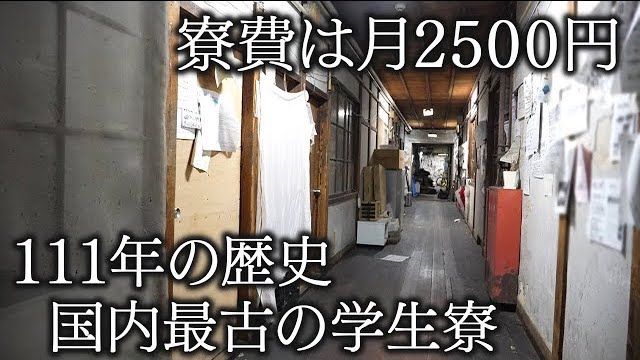KYOTO, Apr 03 (News On Japan) - Residents of Japan's oldest student dormitory, self-managed for over 100 years, are digging in as Kyoto University attempts to evict them from the premises.

Despite being a recognizable part of the Kyoto University Yoshida Campus, the dormitory's name is conspicuously absent from the university's guide signs, indicating a lack of recognition from the university.
Students have been fighting against the university's pressures, holding a fundamental belief in self-governance, opposing top-down decisions, and valuing the bottom-up approach to managing their affairs.
Located in Sakyo Ward of Kyoto, Yoshida Dormitory does not employ any administrators or staff; it is entirely operated by its residents, without any official caretaker. The dormitory houses around 120 students across its various rooms, including living quarters, game rooms, and mahjong rooms. It offers a unique blend of community and autonomy, fostering relationships among students from diverse backgrounds, nationalities, and ages.
Yoshida Dormitory has faced multiple challenges from Kyoto University, including a notable dispute in the 1980s when the university attempted to tighten its control over the dormitory, leading to student protests and negotiations. Despite these conflicts, the dormitory has persisted, with students continuing to engage in discussions with the university regarding their living conditions.
In 2017, citing concerns about the dormitory's aging infrastructure, the university demanded the residents to vacate. This led to legal action against some students, further straining relations between the dormitory's residents and the university. The Kyoto District Court eventually ruled that the majority of the residents did not need to leave, a decision that has been appealed by the university, prolonging the legal battle.
The university maintains that the safety of the dormitory's residents is a paramount concern and has stated that there is no room for negotiation regarding their living conditions. Despite these challenges, students of Yoshida Dormitory continue to value their autonomy and the right to self-governance, cherishing the experiences and lessons learned from living in this unique community.
Source: ABCTVnews















